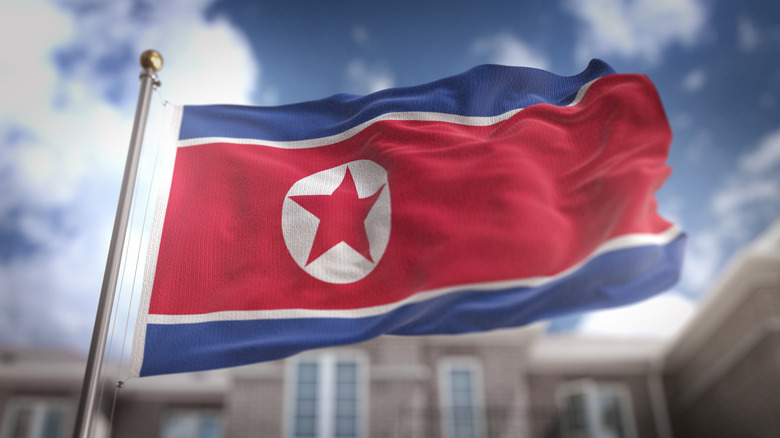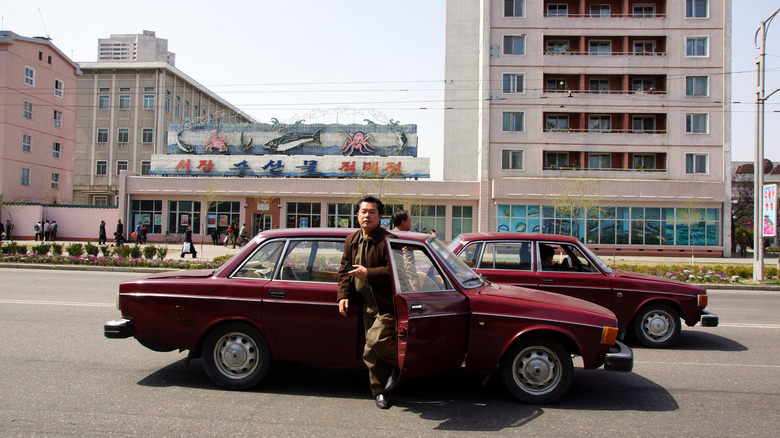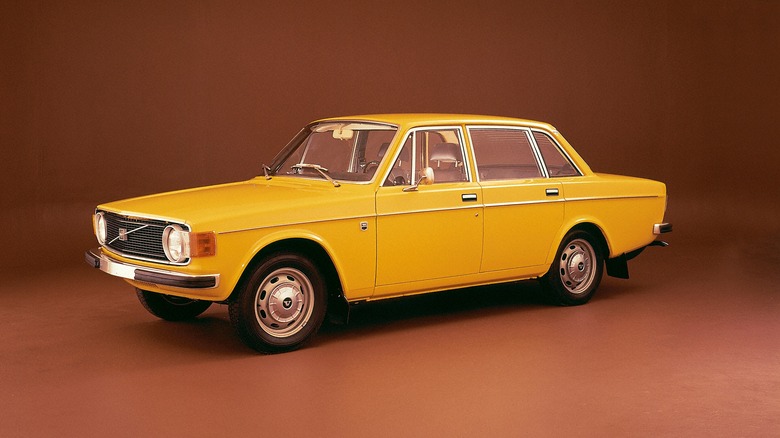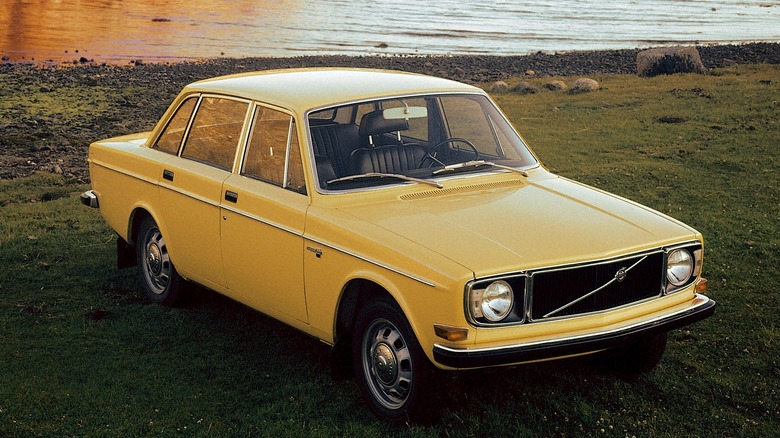How 1,000 Volvos Made A Lasting Impact In North Korea
While there are dictatorships in the world in 2023, North Korea has one of the longest lasting family-led regimes since Kim Il Sung rose to power in 1948. He ruled the country until his death in 1994 and is still posthumously revered as the true leader of the country. His son, Kim Jong Il, took over until he died in 2011, and the current leader of North Korea is his son Kim Jong Un (via Time).
North Korea, also known as the Democratic People's Republic of Korea, is an anomaly compared to other regimes because the populace of North Korea has essentially no access to the outside world in any way, shape, or form. According to the BBC, all the borders are heavily patrolled, and anyone caught escaping to China, South Korea, or Russia risks being shot by border guards or imprisoned. The country, with its population of over 25 million, basically acts as an open-air prison roughly the size of Virginia (via The World Factbook).
Despite the words "Democratic," "People's," and "Republic" in the country's name, its citizens have very few rights, and the ruling party keeps a close eye on everything going in and out of the country. Every industry in North Korea operates in full service of the regime and its ideals. As such, there is little consumer automotive industry in the country. That is, until Volvo decided to try its hand and invest in the country.
Sweden's investment in North Korea
The average North Korean citizen does not have the right to own a car as that would give them a form of autonomy the Kim family does not approve. However, there are a scant few domestically produced cars that government and well-connected people have access to in the form of Pyeonghwa Motors Corp. That company was an effort between the Unification Church of South Korea, Fiat, and manufacturing plants in North Korea. But aside from Pyeonghwa's unvaried selection, there are few other choices.
In the 1970s, after the ceasefire at the end of the Korean War, the Swedish government decided to invest in North Korea as it was experiencing a small period of rebuilding and optimism. According to NPR, Sweden gave the regime, under Kim Il Sung, $70 million worth of gear in the form of both mining equipment and 1,000 Swedish-made Volvos, consisting mostly of its economy sedan, the Volvo 144. NPR also reported rumors that North Korea never actually paid for the vehicles.
Few automotive options in North Korea
In the rare event that Westerners are allowed in the country, they are often chauffeured around in Volvos to this day. Other vehicles in the country's arsenal consist of borrowed Soviet-era troop transports, jeeps, and buses to the aforementioned Pyeonghwa cars. In both a testament to vintage Volvo reliability and the tenacity of the North Korean people, quite a few of the Volvos are still around North Korea's otherwise drab and brutalist capital city of Pyongyang.
Per NPR, the Volvos did something other than give Western journalists a comfy taxi for the week and a privileged few North Koreans reliable transportation. They provided an inroad for diplomacy. To put it lightly, the Western world's relationship with North Korea is contentious. The Korean War itself was brutal, and the North Korean regime has a long and history of human rights abuses. Sweden, however, with its gift of Volvos, was welcomed to the country and able to plant an embassy right in the middle of Pyongyang.
A lifeline to the rest of the world
As reported by the U.S. State Department, the United States does not have any formal diplomatic relations with North Korea since the onset of the Korean war in 1950. In addition, North Korea's nuclear weapons tests have resulted in heavy sanctions and embargoes on the country. Thanks to Sweden's efforts to invest in the country, its Embassy now has what is called a "protecting power," which allows them to serve as the diplomatic bridge between North Korea and other countries like the United States. It's worth noting that the U.S. has a Level 4 travel advisory on North Korea. It's the highest level "due to the critical threat of wrongful detention." Other countries like Iran, Russia, Syria, and Ukraine share the same designation (via the U.S. State Department).
The Swedish Embassy proved to be a lifeline for journalists and documentary filmmakers Laura Ling and Euna Lee when they were imprisoned in North Korea in 2009. According to the BBC, Mats Foyer, Sweden's Ambassador to North Korea was able to visit the two imprisoned journalists and give them a helping hand prior to their release. Although the COVID-19 pandemic has complicated matters, the Embassy of Sweden in Pyongyang, North Korea is able to help other nations. All thanks to a few Volvos.



